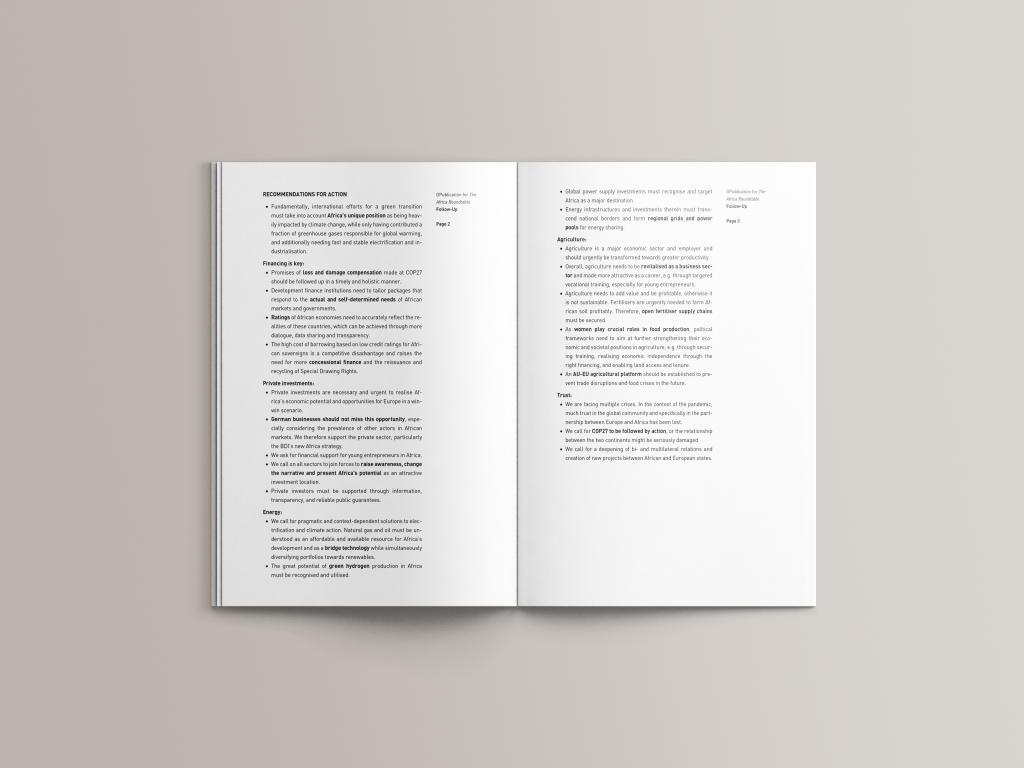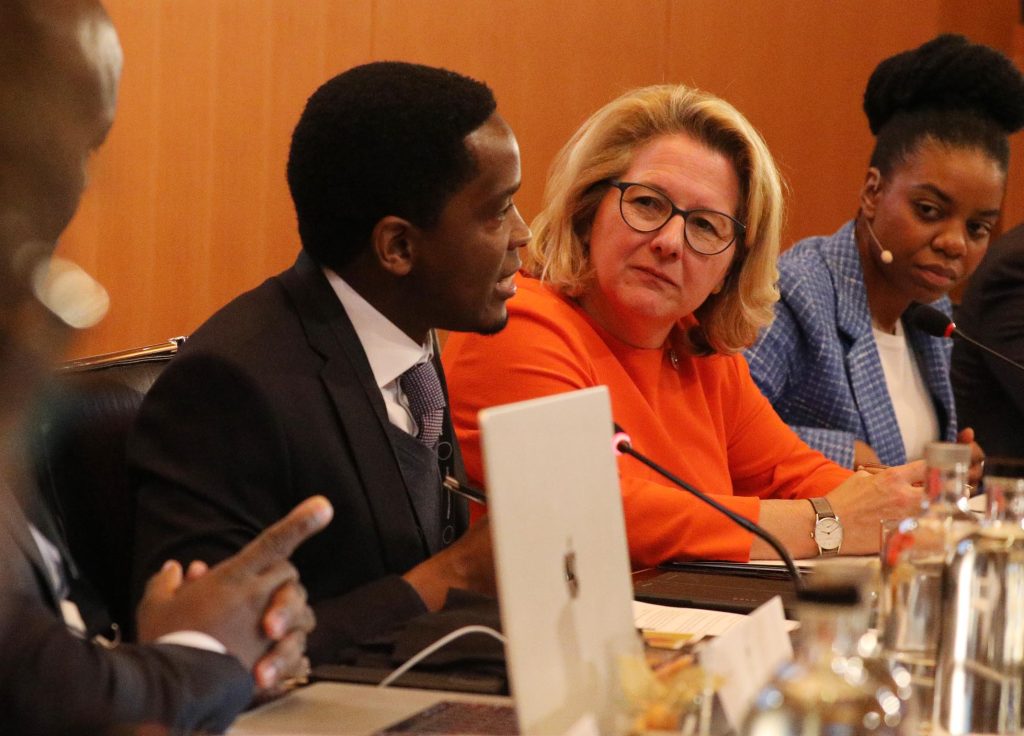Publications
The Role of New Technology in Advancing African Agri-Food Systems
Discussion Paper

The Role of New Technology in Advancing African Agri-Food Systems
Issued on the occasion of The Africa Roundtable “Growing Africa’s Future: Advancing Food Sovereignty through Agricultural Innovation” in May 2024, authored by partner Future Africa Consulting
Publications: The Role of New Technology in Advancing African Agri-Food Systems
May 7, 2024
African food systems are shaped by national, continental, and global megatrends. These include a burgeoning middle–class; urbanization and related shifts in food demand; dietary preferences and downstream modernization of food systems; a labor–force shift from farm jobs to non–farm jobs; and increasing scarcity in farmland.
The continent’s overreliance on imports and food-aid makes it susceptible to supply and price shocks, threatening food sovereignty. Despite having 65% of the world’s unutilized arable land, over 80% of Africa’s basic food imports, comprising of basic and processed foods (mainly wheat, edible oil, maize, and rice), are sourced from outside the continent, and cost an estimated USD 50 billion per year. Moreover, food-aid initiative policies often undermine the continent’s initiatives to produce food locally.
Current efforts to bolster food security across the continent are at various stages of adoption and scale. The discussion paper explores opportunities to drive agricultural innovation across the continent and offers recommendations for stakeholders from the public, Private, and Development Sector.
Technology Spotlights in Innovation
Index-Based Agricultural Insurance
With index-based insurance, payouts are based on objective indices that neither farmers nor insurers can influence. It eliminates the need for individual loss assessments and in turn reduces long-term administrative costs through standardisation and automation. This presents a clear opportunity for growth, but there is still a need to improve the accuracy and affordability of these products.
Smart Irrigation Methods
Artificial intelligence helps farmers monitor and optimize their irrigation strategies. AI algorithms can accurately calculate weather conditions as well as water needs and availability. Combined with AI-driven smart sensors that continuously monitor soil moisture levels, this can save water and promote plant health.
Emerging Blockchain Applications
Blockchain technology facilitates seamless traceability along the value chain, enabling direct exchange between producers and consumers without intermediaries. This promises African farmers fair prices for their produce. However, the effective adoption of blockchain technology on a bigger scale requires an appropriate infrastructure.
Digital Financing Solutions
Inclusive digital finance solutions reduce the costs and risks of agricultural lending. They shorten processing times, increase transparency and enable a wider range of loans, such as financing for vehicles and inputs. Digital finance could close the annual financing gap of 74.5 billion USD for African agricultural small- and medium-sized enterprises (agri-SMEs).
Contact Persons
Stephanie Igunbor, s.igunbor@globalperspectives.org
Supported by
Publications
Our collaborative publications aim to stimulate questioning and discussion. They are the result of a deep engagement with the focus topics of our work and enable a fact-based dialogue.
Program Archive
Investments in women's health are threatened by budget cuts and anti-gender movements. In our webinar, we discussed innovative strategies to drive progress in our digital dialogue.
The inequalities in the global health system have a significant impact on the financial situation of women. We discussed economic growth through equal opportunities.
Together with David Miliband, CEO & President of IRC, and selected stakeholders from politics, business, academia, we discussed Germany's responsibilities in an international system in crisis.
In conversation with Anna Bjerde and other representatives from politics, business, and academia, we discussed efforts in fostering sustainable development.
The African continent has the potential to become the global agriculture powerhouse. The action recommendations of the sixth conference.
The research paper on food sovereignity in Africa was issued on the occasion of The Africa Roundtable “Growing Africa's Future” 2024 in Berlin.
Together with Bill Gates, Annegret Kramp-Karrenbauer, and other representatives from politics, business and academia, we discussed Germany's new role in the world.
Forests play a vital role in local economies and global climate protection. In our webinar, we explored how economic growth and environmental protection go hand in hand.
The sixth edition of the Africa Roundtable focuses on how the African continent can unlock its full potential as an agricultural powerhouse.








